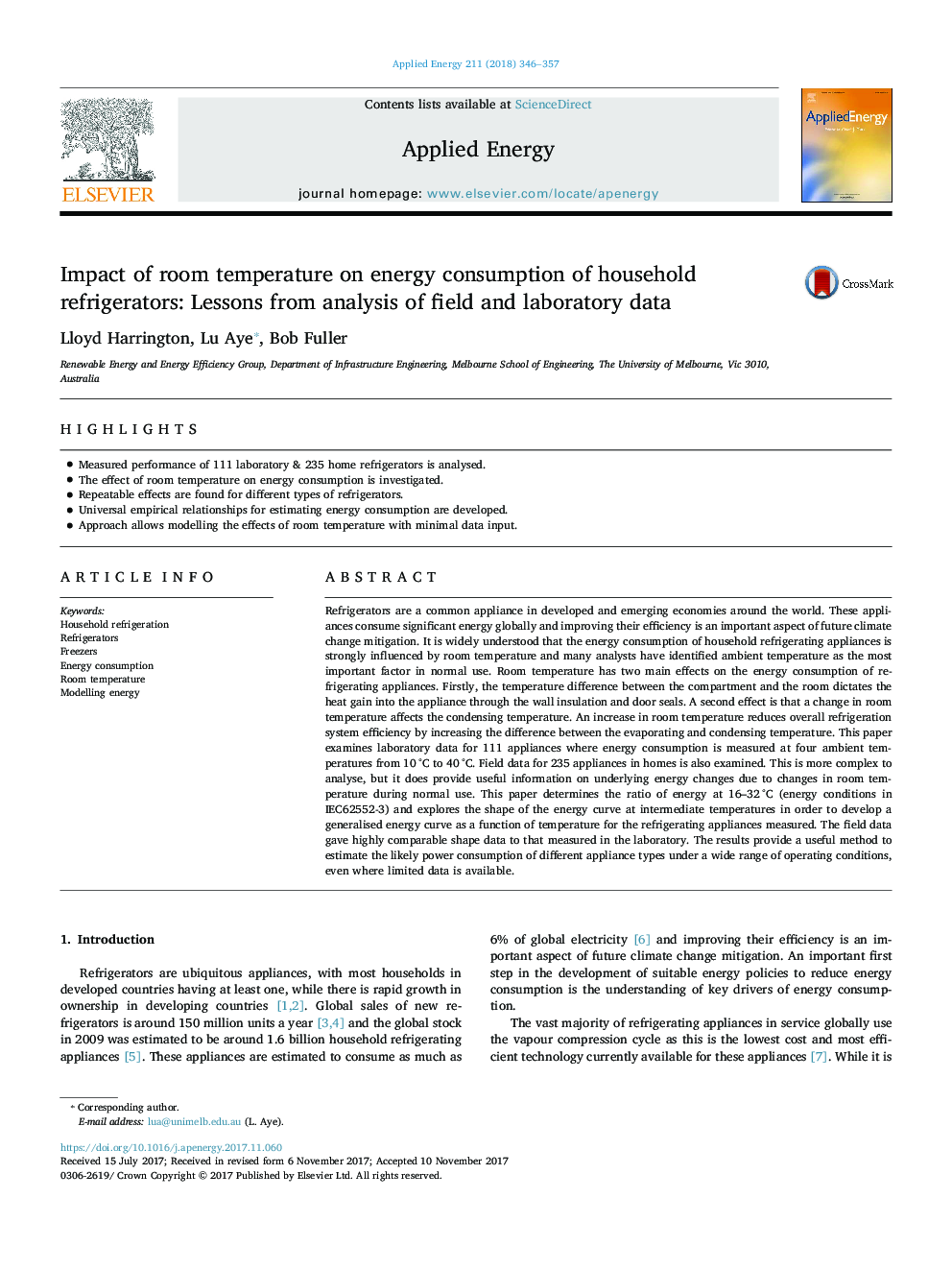| Article ID | Journal | Published Year | Pages | File Type |
|---|---|---|---|---|
| 6681212 | Applied Energy | 2018 | 12 Pages |
Abstract
Refrigerators are a common appliance in developed and emerging economies around the world. These appliances consume significant energy globally and improving their efficiency is an important aspect of future climate change mitigation. It is widely understood that the energy consumption of household refrigerating appliances is strongly influenced by room temperature and many analysts have identified ambient temperature as the most important factor in normal use. Room temperature has two main effects on the energy consumption of refrigerating appliances. Firstly, the temperature difference between the compartment and the room dictates the heat gain into the appliance through the wall insulation and door seals. A second effect is that a change in room temperature affects the condensing temperature. An increase in room temperature reduces overall refrigeration system efficiency by increasing the difference between the evaporating and condensing temperature. This paper examines laboratory data for 111 appliances where energy consumption is measured at four ambient temperatures from 10â¯Â°C to 40â¯Â°C. Field data for 235 appliances in homes is also examined. This is more complex to analyse, but it does provide useful information on underlying energy changes due to changes in room temperature during normal use. This paper determines the ratio of energy at 16-32â¯Â°C (energy conditions in IEC62552-3) and explores the shape of the energy curve at intermediate temperatures in order to develop a generalised energy curve as a function of temperature for the refrigerating appliances measured. The field data gave highly comparable shape data to that measured in the laboratory. The results provide a useful method to estimate the likely power consumption of different appliance types under a wide range of operating conditions, even where limited data is available.
Related Topics
Physical Sciences and Engineering
Energy
Energy Engineering and Power Technology
Authors
Lloyd Harrington, Lu Aye, Bob Fuller,
